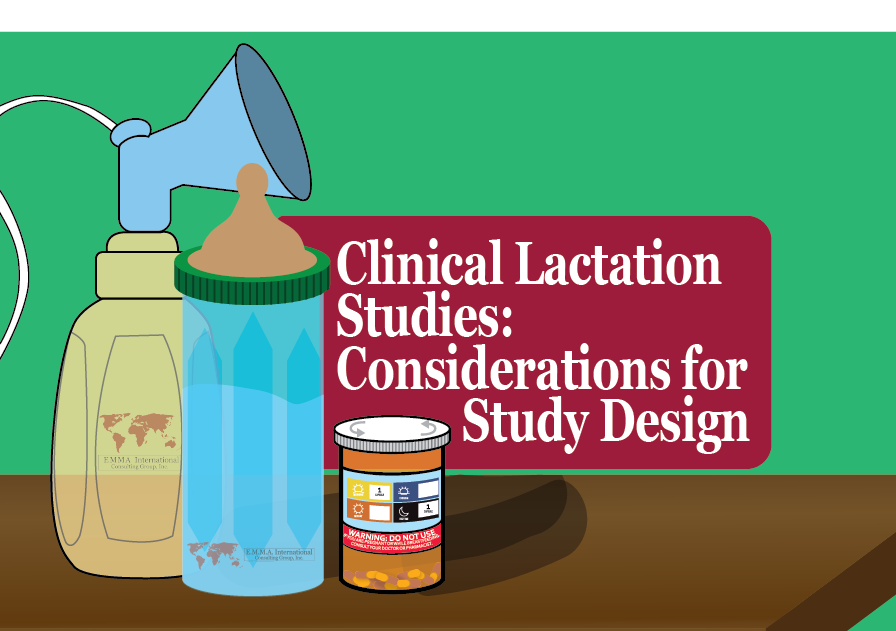On May 8, 2019, FDA released draft guidance, Clinical Lactation Studies: Considerations for Study Design, building upon the previous guidance, Clinical Lactation Studies – Study Design, Data Analysis, and Recommendations for Labeling, released in 2005. The draft guidance is expected to simplify the FDA’s recommendations and assist women and healthcare professionals in deciding what drugs are appropriate for women who are breastfeeding to take.1
The situations recommended for when a clinical lactation study would be appropriate remain the same: a drug under review for approval is expected to be used by women of reproductive age, after approval, use of a drug in lactating women becomes evident, a new indication is being sought for an approved drug and there is evidence of use or anticipated use of the drug by lactating women, and finally marketed medications commonly used by women of reproductive age. Other factors should also be considered on a case-by-case basis.2
New to this draft guidance are ethical considerations for designing a clinical study including lactating women. It is important to FDA that human subjects have certain protections as described in 21 CFR part 56 and 21 CFR part 50. The ethical considerations listed are broken out into those pertaining to three populations of lactating women. The populations described are lactating women prescribed a drug, subject to a lactation study, as part of standard clinical care, lactating women being administered an investigational drug in a research setting, and healthy lactating women volunteering for the clinical lactation study and are administered the investigational drug. The ethical considerations surrounding all three populations of women are whether their breastmilk can be fed to a baby. Women prescribed and taking the drug as part of standard care may continue to breastfeed without additional tasks and women who are administered an investigational drug as part of a clinical trial may as well if they temporarily pump and discard the milk to avoid exposure to the infant. All risks to the infant are to be described in the study as any drug exposure and potential drug exposure are considered clinical/ research risk. Healthy volunteers must discontinue breastfeeding for the duration of the study.2
In the general study designs section, a difference in this new proposed draft guidance recommends milk-only studies unless there is a specific reason to conduct one of the other clinical lactation studies discussed. A milk-only study is used to detect the concentration of the drug present in the breastmilk. Discovering a high concentration present in the milk would be a reason another study would be conducted. Another study such as milk and plasma or mother-infant pair.2
The proposed revision also includes guidance on dosage, sample size, data collection, and data analysis as the current guidance does as well. But does not include any discussion or recommendations on labeling as those are addressed in 21 CFR 201.57(c)(9)(ii).2
The idea of simplifying and streamlining the process of what studies need to be done and what needs to be considered before a drug is marketed as not impacting the integrity of breastmilk is an important one FDA has taken on. Many new mothers often worry about what medications are safe to take and often simply suffer through as to not take the risk. Updating the guidance to be clearer about what is expected and recommended should take a step in the right direction of having drug manufacturers studying the effects on lactating women. This, in turn, will give healthcare providers and new mothers more information to make a sound decision about their course of treatment.
As this is still a draft guidance, FDA is taking comments until July 8, 2019. You can submit your suggestions or comments on FDA’s draft guidance, Clinical Lactation Studies: Considerations for Study Design using the following link: https://www.regulations.gov/comment?D=FDA-2018-D-4525-0001.
For any other questions that you may have about the draft guidance, or any other questions regarding clinical trials or clinical studies, please contact us at 248-987-4497 or info@emmainternational.com.
1 FDA (May 2019) Statement from Principal Deputy Commissioner Amy Abernethy, M.D., Ph.D., and Janet Woodcock, M.D., director of FDA’s Center for Drug Evaluation and Research, on policies designed to capture more data to better understand effects of prescription drugs in pregnant and nursing women retrieved on 05-15-2019 from https://www.fda.gov/news-events/press-announcements/statement-principal-deputy-commissioner-amy-abernethy-md-phd-and-janet-woodcock-md-director-fdas
2FDA (May 2019) Clinical Lactation Studies: Considerations for Study Design Guidance for Industry retrieved on 05-15-2019 from https://www.fda.gov/media/124749/download





